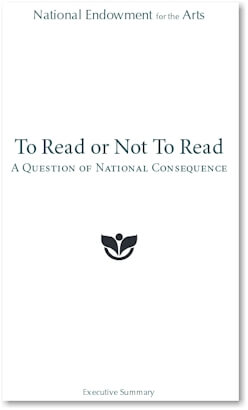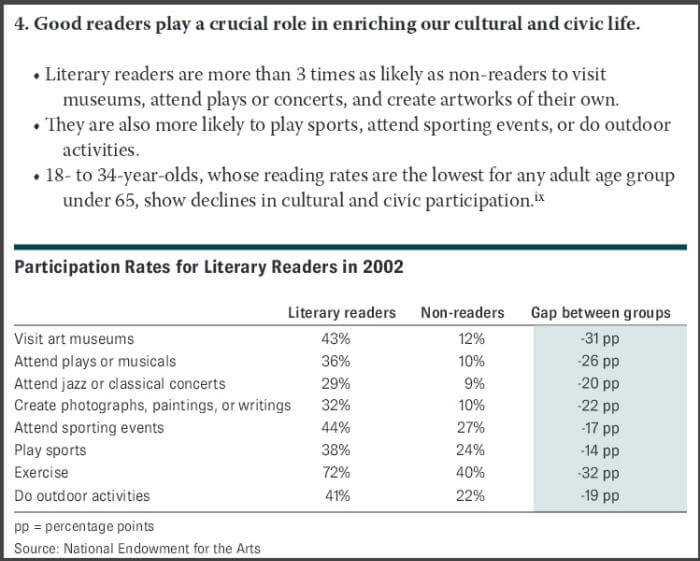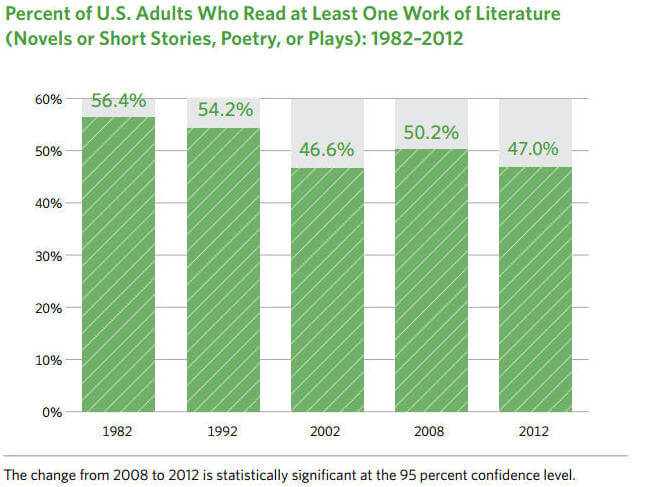 Frequent AALBC.com visitors may
already know I consider search results biased
toward large corporate sites the main culprit in reducing the
traffic
going to independent book websites.
However,
as I look deeper it is becoming apparent that coporate control of the world wide
web, while problematic, does not
provide a complete explanation for the apparent waning demand for African
American books.
Frequent AALBC.com visitors may
already know I consider search results biased
toward large corporate sites the main culprit in reducing the
traffic
going to independent book websites.
However,
as I look deeper it is becoming apparent that coporate control of the world wide
web, while problematic, does not
provide a complete explanation for the apparent waning demand for African
American books.
Indeed, downward pressure on book sales is not just apparent online. Lower demand is hurting physical book stores as well. The failure of Borders and the dramatic number independent Black owned closing, over the last several years can not be explained by biased search results alone.
In an environment where there is so much financial pressure on most Americans, it would not be too surprising to find people simply can not afford the luxury of shelling out more than $30 for a hardcover book from their local bookstore. Of course when America begins to notices the first signs of a sore throat, the Black community has already been laid up for week with the flu. It is also very possible our suffering economy is a more significant factor contributing the lower demand for books.
The chickens of our failing educational systen may also be coming home to roost. Decades of inadequate public education may also be reducing our ability and desire to participate in the activity of enjoying a good book.
The increasing number of books published each year stands in stark contrast to the number of books actually read and is a misleading indicator of reading rates. The effort to publish a book is almost trivial. The surge in the number of books published compared to a decade ago is more a function of the improvement in publishing technology than demand from the reading public. This, of course is supported by the fact that only a small percentage of all the books sell more than 100 copies.
Even the explosion of eBooks sold over the last few years (which may have leveled off, as a percentage of physical book sales), or downloaded, is misleading, because so many eBook are free, or nearly free. People may be willing to download a 99 cent eBooks on whim and never actually read it.
Over time I will compile and collect data in an attempt to provide more definitive answers to these questions. Please contribute your comments or any suggestions you might have in the comments section below or feel free to email me at troy@aalbc.com [last update, 6 February 2015]
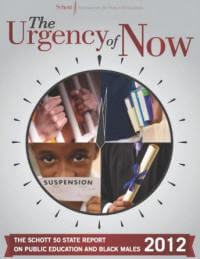 The
Urgency of Now: The Schott Foundation’s 50 State Report on Public Education
and Black Males
The
Urgency of Now: The Schott Foundation’s 50 State Report on Public Education
and Black Males
Download the, Free, PDF Version of This Report
For nearly a decade, the Schott Foundation for Public Education has published data on the outcomes for Black males in public education.During that period, there has definitely been an increased awareness of the issues and opportunities confronting Black males. There have been more national, state and local commissions formed, philanthropic dollars invested,programs developed and documentaries produced all of which we view as worthy investments.Without these, it is very unlikely that any progress would have been made over the past decade.
John H. Jackson, president and ceo of the Schott Foundation, and Michael Holzman, lead author of the Schott Foundation report on inequities in the NYC school system, talk about their report and the data they say shows poor Black and Hispanic students are given fewer opportunities in NYC schools.
In 2004 the National Endowment for the Arts Issued a Grave Warning
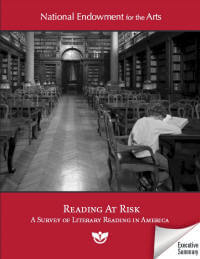 Reading at Risk is not a report that the National Endowment for the Arts is happy to issue. This comprehensive survey of American literary reading presents a detailed assessment for the decline of reading’s role in the nation’s culture. For the first time in modern history, less than half the adult population now reads literature. Anyone who loves literature or values the cultural, intellectual, and political importance of active and engaged literacy in American society will respond to this report with grave concern.
Reading at Risk is not a report that the National Endowment for the Arts is happy to issue. This comprehensive survey of American literary reading presents a detailed assessment for the decline of reading’s role in the nation’s culture. For the first time in modern history, less than half the adult population now reads literature. Anyone who loves literature or values the cultural, intellectual, and political importance of active and engaged literacy in American society will respond to this report with grave concern.
Reading at Risk is not a collection of anecdotes, theories, or opinions. It is a descriptive survey of national trends in adult literary reading covering most major demographic groups— providing statistical measurements by age, gender, education, income, region, race, and ethnicity. The report can be summarized in a single sentence: literary reading in America is not only declining among all groups, but the rate of decline has accelerated, especially among the young.
Reading a book requires a degree of active attention and engagement. Indeed, reading itself is a progressive skill that depends on years of education and practice. By contrast, most electronic media such as television, recordings, and radio make fewer demands on their audiences, and often require no more than passive participation. Even interactive electronic media, such as video games and the Internet, foster shorter attention spans and accelerated gratification. To lose such intellectual capabilities—and the many sorts of human continuity it allows—would constitute a vast cultural impoverishment.
More than reading is at stake. As this report demonstrates, readers play a more active and involved role in their communities. The decline in reading, therefore, parallels a larger retreat from participation in civic and cultural life.
What is to be done? There is surely no single solution to the present dilemma, just as there is no single cause. Each concerned group—writers, teachers, publishers, journalists, librarians, and legislators—will legitimately view the situation from a different perspective, and each will offer its own recommendations. The important thing now is to understand that America can no longer take active and engaged literacy for granted.
—Dana Gioia, Chairman, National Endowment for the Arts

